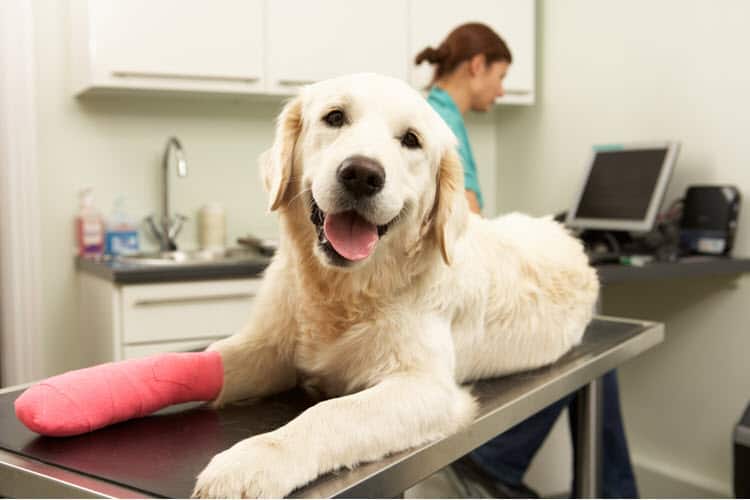
Important Things You Must Know Before Getting a Pet Insurance

Feeling down, blue, or just bored? Animals have always found a way to cheer us up. They are like friends who take away your stress and fill your life with joy and companionship. That’s why these lovable creatures have always held a special place in a household.
People invest in so many things including houses, cars, clothes, food and other luxuries of life. Pets are also considered an investment because they are treated like a part of the family. Pet-lovers spend so much money on their furry little friends from routine trips to the vet to premium quality food and toys to keep them busy.

Like humans, pets deserve investment. Insurance is one way of being prepared for any health problems that may arise in the future
But the U.S. pet-owners are willing to go the extra mile for their four-legged companions by investing in pet insurance. Sure, your pet’s current state may not entail a visit to the vet, but as a pet owner, you can never be too certain about their health in the future.
In fact, more and more Americans are opting to get their pets insured, and they aren’t too rigid when it comes to spending for the welfare of their trusted buddies. Last year, 2.1 million pets were insured in Canada and the United States, a 17 percent increase from 2016, according to a report from the North American Pet Health Insurance Association. In 2017, pet owners shelled out over $1 billion on animal policies.
It is obvious that pet insurance has been steadily gaining popularity. However, this doesn’t mean you should immediately jump on the bandwagon. There are several factors to consider before enrolling your pet in a policy.
While most companies offer the same standard benefits for your pets, there are a few that edge over others by offering more coverage or lower premiums, but always read the fine prints before signing on the dotted line. It is your responsibility as a pet owner to do ample research on various insurance providers and draw comparisons before making the decision.
Understanding The Cost Of Pet Insurance
Like most other types of insurances, premiums are the first and most obvious cost of a pet insurance. Last year, NAPHIA reported dog-owners pay an average premium of $44.58 per month ($535 annually) to protect their pets against accident and illness whereas cat-owners only spent $27.93 per month (or $335.19 a year).
When looking for the right insurance provider to meet your pet’s needs, narrow down your choices to established companies such as Pets Best, 24PetWatch, ASPCA Pet Health Insurance, PetFirst, Trupanion, AKC Pet Insurance, Petplan, Healthy Paws, Embrace Pet Insurance, and Nationwide.
Learning About Plan’s Coverage
Before jumping to the cheapest insurance plan available on the market, pet owners should understand what the plan does and doesn’t cover. Just like with human insurance plans, most pet insurances will differ from one another in terms of policies and pricing.
Getting your pet a health insurance plan is an investment that gives some surety against an unpredictable future. Hopefully, your beloved pet will never have to face a serious health condition that puts its life in danger but in case it does happen, you can at least have some peace knowing that the insurance is paying most, if not all, of the medical bills.

Carefully select the right plan for your pet’s needs by considering offers and coverage from each insurance provider
The insurance coverage will depend on your chosen plan. While some companies will cover 90 percent of the bill, others shoulder up to 70 percent or less. Veterinarian and animal hospital owner Gary Richter explained most pet insurance cover serious health problems like injuries and illness, but not checkups or preventative care.
There are also insurance plans that offer coverage for your pet’s regular checkups. Moreover, you need to check if the policy you’re availing will cover any pre-existing conditions that your pet has. Sometimes, the insurance provider will not cover diseases that could have been prevented by vaccines, so always make sure to get them vaccinated on time.
Long story short, study the policies carefully and assess whether your pet falls in any category that the insurance will not cover.
As a pet owner, you should also decide when to get pet insurance. It’s better to avail a plan as early as possible before your pet develops any pre-existing sickness or diseases that the insurance company doesn’t cover. That said, it is best to enroll kittens or puppies than while they are still young.
Saving Up On Your Own
Now, if you aren’t too sure about getting a pet insurance, you can always plan ahead on your own by setting aside a small sum for your pet to cover any unexpected medical cost that you may have to face in the future. You can even open a savings account or an emergency fund solely dedicated to your pet so that you’re not tempted to dip into the savings for personal use.

Insurance is still a business. If you’re doubting these companies, you can always open up your own emergency fund to protect your pet against future uncertainties
There are many advantages to sticking with this one. First, you can use the money in times of emergency and you’re falling short on cash. After you have earned enough again, you can always return the money. Second, if your pet remained healthy all throughout its life, then the money stays with you.
The bottom line is, it pays to be financially prepared as a pet owner. It is uncertain if your animal is ever going to be healthy for life or if a health problem will arise.
More in Business
-
Why American Consumers Are Falling Behind on COVID-Era Debt
When the world was grappling with the health crisis brought on by COVID-19, the U.S. economy faced an equally formidable challenge:...
November 27, 2023 -
Dr Dre and Ex-Wife Nicole Young Finalise $100m Divorce Settlement
After months of legal proceedings, Dr Dre, the legendary rapper, producer, and businessman, officially brought his tumultuous divorce from ex-wife Nicole...
November 22, 2023 -
5 Tell-Tale Signs That It Is Time to Say Goodbye to Your Current Job
Are you feeling like your job is more like a ball and chain than a fulfilling career? The daily grind, the...
November 19, 2023 -
WWE Signs $1.4 Billion Broadcasting Contract for SmackDown
In an explosive turn of events, World Wrestling Entertainment (WWE) has just unleashed some earth-shattering news for its legions of fans....
November 9, 2023 -
Navigating the Mortgage Maze as Interest Rates Take a Historic Leap
The U.S. housing market is nothing short of a dynamic entity. It evolves, reacts, and sometimes, just like the current real-estate...
November 3, 2023 -
Celebrity Couples Where the Woman Has a Higher Net Worth
In a world where gender roles and financial dynamics constantly shift, it’s not unusual to find celebrity couples where the woman...
October 27, 2023 -
Why the Gender Pay Gap Could Be Worsening
Picture this: Two college students, Alex and Charlie. Both are bright, have the same interests, and are ready to embrace the...
October 19, 2023 -
JC Penney’s Remarkable $1 Billion Revival Plan
In a remarkable turnaround, JC Penney unveiled a bold $1 billion revival plan, breathing new life into a brand that faced...
October 12, 2023 -
Shattering the American Dream: Mortgage Rates, Inflation & Cost of Living
You know that feeling when you are dreaming of something you have wanted for so long, only to watch it vanish...
October 6, 2023















You must be logged in to post a comment Login